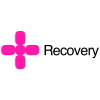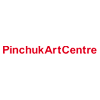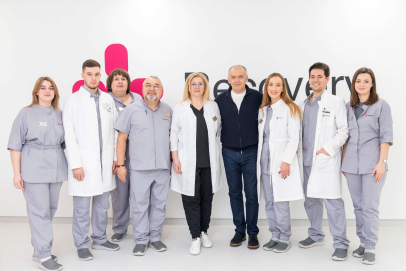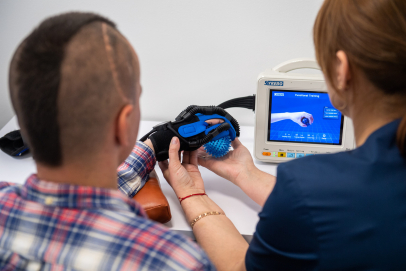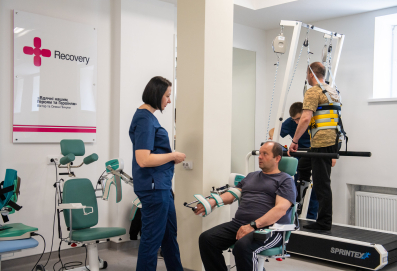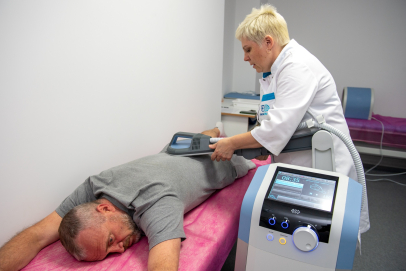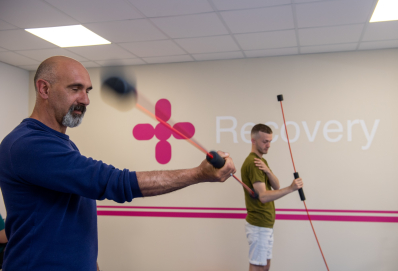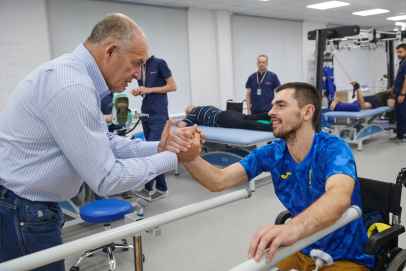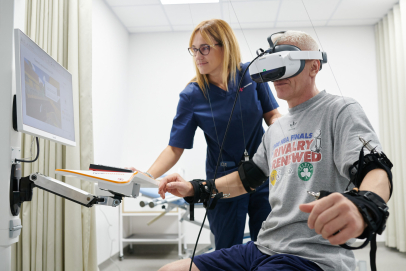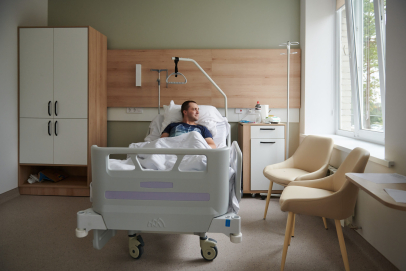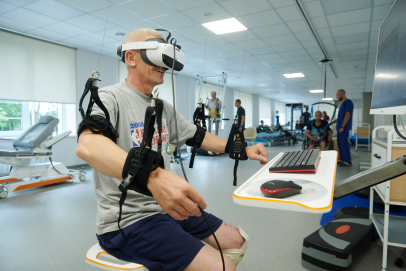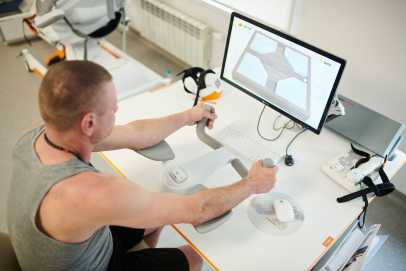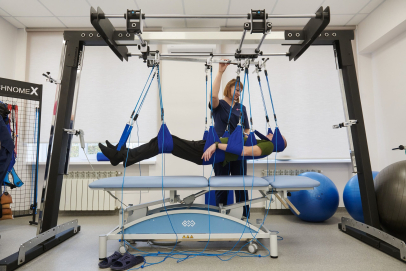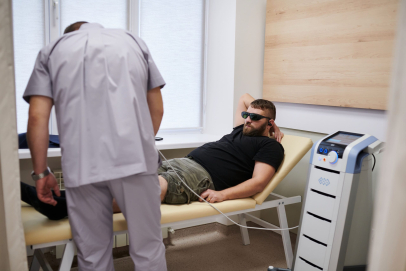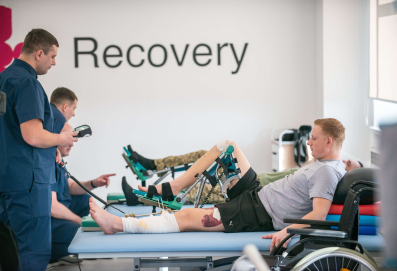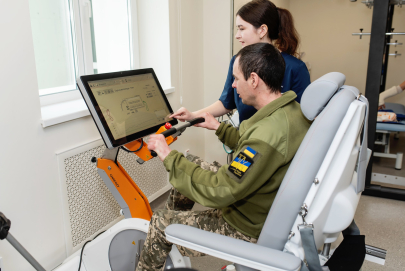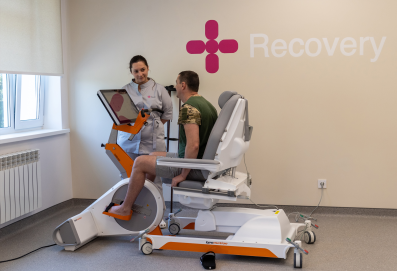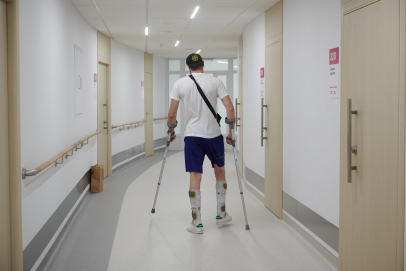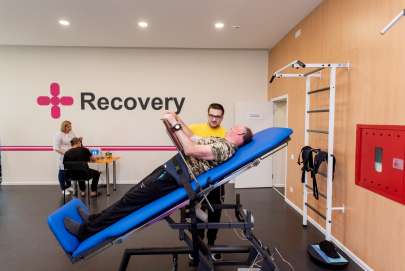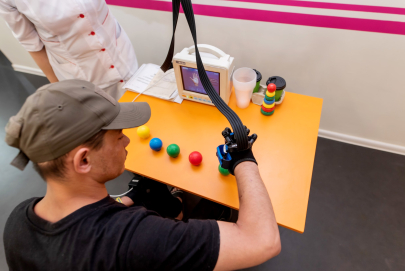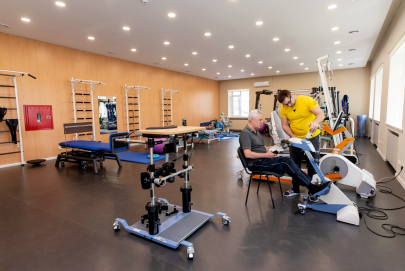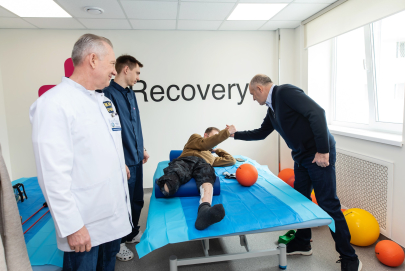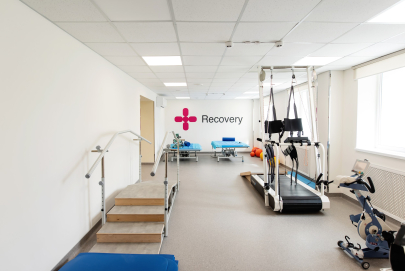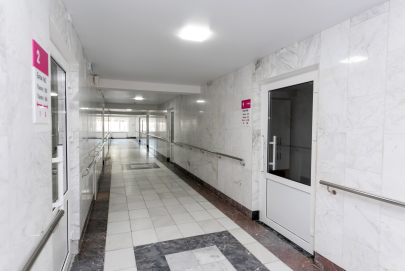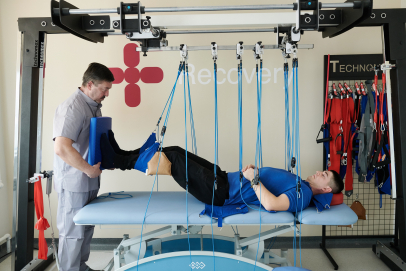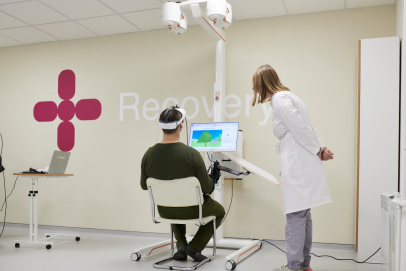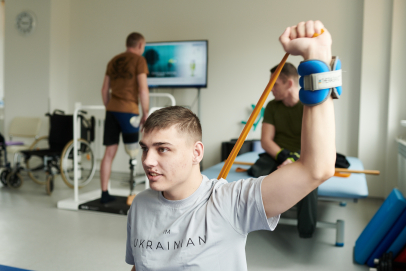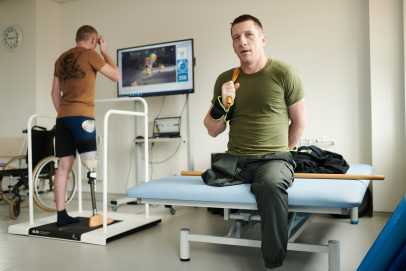Press about us
«The Davos dilemma»-2007
Maxim PAVLENKO, Kiev-Davos-Kiev
The contradiction between a favourable economic situation and disturbing political tendencies is obvious for everyone.
Davos, Switzerland. People meet here not just to talk about business, but also to deal with politics, or simply for self-advertisement purposes. The "international community" - one of the most abstract phrases in our vocabulary - becomes quite tangible here.
According to a colleague of mine, Nathan Gardels from The International Herald Tribune, who has visited the Davos conclaves for two decades as a member of the "club of media leaders", "Far from some kind of conspiracy of the global elite plotting the future as they whisk down the Alpine slopes, Davos is, in fact, a back-end barometer of their evolving worldview. It does not break new ground, but consolidates opinion. It does not generate new trends, but codifies them into conventional wisdom. That is its power and its importance".
The most recent forum was characterized by record-breaking attendance: 2,400 politicians, businessmen and community leaders from 90 countries attended. The international business community was represented on an extremely wide scale: 73 out of the 100 largest international companies were represented.
A New Reality
The first meeting of Europe's business leaders at this mountainside resort two-hours' drive from Zurich took place back in 1971, under the title "European Management Seminar." The purpose was to discuss their response to the "American challenge."
The new reality that the world will have to get used to and that the current forum's participants were fully aware of, is the loss by US of its monopoly for globalisation and the shift in the world's concentration of power. "American-bred technology may be its midwife, but Americans are no longer solely the parents. Globalisation now belongs to everyone who can figure out how to take advantage of its opportunities and minimize its dislocations", Nathan Gardels noted.
The world's economy was able to withstand the war in Iraq and rising oil prices. However, the atmosphere is still tense. The repeated use of the fancy term "petroeconomic" and a two-way translation of the discussed "Shifting Power Equation" as both "the shifting balance of power" («сдвигающийся баланс сил») and "progress in the balance of energy" («подвижки в энергобалансе») are the signs of our time. Hence, close attention is paid to Russia, India and China.
"Many things we thought were totally immovable are being shifted around. We should constantly remind ourselves that this development was set in motion by three historic events within the space of just less than fifteen years - first, the fall of the Berlin wall and the reintegration of Central and Eastern Europe, as well as of Russia, into the global economy; second, the technological revolution in IT and communications, and third, China's, India's and other countries' transition from static to dynamic economies and their quantum leap onto the world markets", said Angela Merkel, the Chancellor of the Federal Republic of Germany in Davos, emphasizing that "the world economy is undergoing an unbelievable process of change".
According to her, as a result of this, "one-third of the world's population has changed from spectators on the global stage to actors". The recognized "actors on the global stage" (developed countries) take this as the sign of that the world is now more unpredictable, and the new players believe that the world gives more chances to them, but in fact, "a completely new global balance of power is being created", the Chancellor said.
The essence of the problem, which scares the US and Europe, in my opinion, was very well stated by the Iranian economist Muhammad Hussein Adeli. He believes that "Energy power slipped away from the hands of the West on both ends of the manufacturing chain. The multinational extracting companies started to give way to the manufacturing countries, which put their resources back under their own control. In addition, the demand for crude oil and gas becomes more and more dependent on the emerging economies, such as China or India, and less dependent on Europe and America". "This gives birth to new heroes, new political forces," Adeli says. "The most conspicuous one is Russia, which pursues an extremely active policy in the Caucasus, Asia, former Soviet republics and Europe".
Arseniy Yatsenyuk noted that the Ukrainian economy is doing much better than its politics. His Russian colleague Igor Tromberg sounded even more categorical: "Washington and Brussels regard the breakthrough of the companies of the developing countries as a threat to the interests of "golden billion" in some particular region. The West is especially alarmed by the signs of Russia's intentions to create a kind of the world's "gas cartel" consisting of Algeria, Qatar, Libya, the countries of the Central Asia, and Iran, which is, allegedly, going to replace OPEC."
Tromberg also admits that "the first practical steps on the way to this are already being taken - the political leaders of Russia and Iran had high-level discussions of the plans on exchange of gas assets. The exchange of assets with Algeria has already started to be practically implemented. This can be seen as Moscow's intention to get a tighter grip on its potential competitors in the European gas market. Everyone understands this very well: sooner or later the considerable volume of the Iranian stores (26, 9 cubic meters) will be converted to the supplies to EU".
However, the Algerian minister of energy and natural resources, Shakib Khelil, has already noted that now it would be "premature and too difficult to speak about the founding of the "gas OPEC"... Perhaps, in 20-30 years, when swap and liquefied gas markets are created, the market will become more agile and will be characterized by the same attributes as the oil market."
In any event, experts admit the possibility that the coordination of Moscow, Algerian and Tehran positions will manifest itself at the next forum of gas exporters, which will take place in Qatar in April.
Merkel Code
George Soros is sure that Ukraine needs even more "transparency". "The Protectionism in the economic and social spheres is inadmissible; long live the principles of free trade!" was the leitmotif of the speech of Ms. Merkel. It was heard by the key players of the World Trade Organization (WTO), who agreed to resume their negotiations on the liberalization of world trade at the Davos forum in the framework of the current Doha round.
This round came to a deadlock last summer, as the WTO members were not able to achieve any progress regarding the key issues - the procedure for the reduction of duties and subsidies in agriculture.
According to WTO director general Pascal Lami, nearly 30 ministers of trade of WTO member countries agreed in Davos "to come back to full-fledged negotiations". The key players of WTO, such as the USA, European Union, Japan and Brazil agreed to make a number of concessions to overcome the deadlock of the Doha round.
According to the new agreement draft, the USA must reduce the state support of agricultural sector. European Union and other major importers should lower the duties for agricultural products, and the developing countries should ensure a more favourable mode of access to the market of industrial products.
In Ms. Merkel's opinion, concurrent Presidencies of Germany in the European Union and 8G gives it the opportunity "to generate synergies in many themes that are important to both organizations." At the same time, she repeatedly emphasized that only a unified G8 approach can help convince the emerging economies, with their dynamic economic growth, "in the necessity to take a high global responsibility". In this context the chancellor described her aim for the upcoming G8 Summit in Heiligendamm in June - to agree upon new forms of dialogue with the major emerging economies, such as Brazil, China, India, Mexico and South Africa.
Oleg Rybachuk, as always, demonstrated exceptional communication skills. And, finally, a small sensation that triggered an emotional outburst, was Merkel's statement on the birth of a new strategic alliance between the EU and the United States - of the countries, which have conflicts almost throughout the whole range of economic relations. Though, she immediately noted that "this approach is not directed against anyone. What's more, other countries that have close trading relations with Europe and the US will, definitely, benefit from greater economic integration".
On April 30 in Washington it will become clear what Ms Merkel really meant. There, at the EU-US summit the problems existing in transatlantic relations will be discussed.
Who is Mister Medvedev, or Twenty Years Later
The Soviet citizens, including myself, first heard about Davos on February 1, 1987, when the German foreign minister Hans Dietrich Gensher spoke at the plenary assembly of the World Economic Forum, calling to support Mikhail Gorbachev: "Gorbachev must be taken seriously. Don't miss your historical chance!"
Twenty years later, "The Soviet Union" word combination was unexpectedly heard from one of the most promising politicians of the present-day Russia - Dmitriy Medvedev: "They say that the Russian state reminds of the Soviet Union, and, perhaps, this is really so, but in terms of one aspect only - its economic influence".
Yevgeniy Marchuk and Vitaliy Klichko have the ability to say as little as possible about actual policy. In Davos Medvedev talked to bankers, leading manufacturers and politicians who have some concerns in connection with the new course of Russia, the democracy in Russia and the country's relations with its neighbours - the countries of the former USSR, and was trying to appease everyone. Time will show how successful his attempts were to demonstrate the "soft power" in the Russian policy, which was long-hoped for in the West. The Western partners, at least, were trying to play into the hands of this tendency. Perhaps, this is the reason why the most sensitive issues were avoided, in general.
Some western journalists and political analysts remarked that Medvedev's demeanour and his manner of talking reminds them of Vladimir Putin more and more. Especially after he noted: "We are not trying to make anyone love Russia, but we will not let anyone do it any harm." In their opinion, Mr. Medvedev, as well as the current Russian president, is rather a technocratic than a charismatic type of politician.
So, if Putting actually intended to address an appeasing and sound message to the power players in Davos, he sent the right person. He was taken as a representative of the reformist trend in the Kremlin, opposing the security ministers.
Ukraine: In Search of Creative Imperative
Owing to the efforts of its founder and its eternal leader Klaus Schwab, who was able to bring together the world's leading politicians, businessmen and scientists, the Davos forum did not turn into yet another image brand. As a western journalist aptly remarked, "If you are a millionaire, this does not give you the right to get here; you have to deserve this right. So, one can say that Davos is a special way and style of the world's leadership".
Victor Yanukovich believes that non-formal meetings in Davos are extremely useful. The first person in Ukraine to understand this was the owner of "Interpipe" group Victor Pinchuk. It is he who has been organizing the "Ukrainian lunch" in the framework of Davos forum for three years in a row, among other things, promoting a new ethics in upholding the interests of Ukraine. And not without success, we should say.
«Three years ago, when we organized the "Ukrainian lunch" in Davos for the first time, we had the same purpose that we have today - to promote Ukraine and to contribute for the dialogue, mutual exchange and understanding between Ukraine and the world's leaders. 35 guests came to see us three year ago, and today we have tens of times more guests", Mr. Pinchuk said proudly.
The visit to the forum of two other leading Ukrainian businessmen - Rinat Akhmetov and Sergey Taruta - can also be considered a landmark event, which, undoubtedly, raised the status of the Ukrainian presence in Davos. So, the current "lunch" was not a commonplace event at all, as evidenced by the fact that it was attended by such prominent figures as George Soros, Victor Vekselberg, Andrey Kostin, David Yakobashvili, to say nothing of the impressive list of the politicians who attended the meeting - from the weariless Alexander Kvasnevsky to Bill Clinton (though, the latter participated in the meeting in a video address format).
So, we can say that the interest in Ukraine is evident, and, perhaps, the world's leaders will soon be able to notice the changes, if not in the country itself, then at least in its elite. Another question is whether we show our face to the world the way that we should? It seems to me that we should readdress this question to the official representatives of the Ukrainian delegation - the Prime Minister Victor Yanukovich, and the first deputy head of the Secretariat of the Ukrainian President Arseniy Yatsenyuk.
Looking into the face of the representatives of the Ukrainian delegation in Davos for the third year in a row, the representatives of western elites are trying to notice some characteristic features, which would allow talking about the new generation of the Ukrainian political leaders. They will hardly be able to do this earlier than we do, since we should remind you that Davos does not usually generate any new phenomena, but just records their appearance.
The trip of the group of the Ukrainian journalists to Davos was organized under the auspices of Victor Pinchuk Fund.


